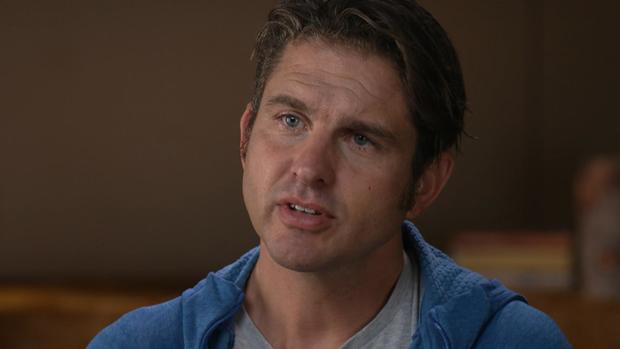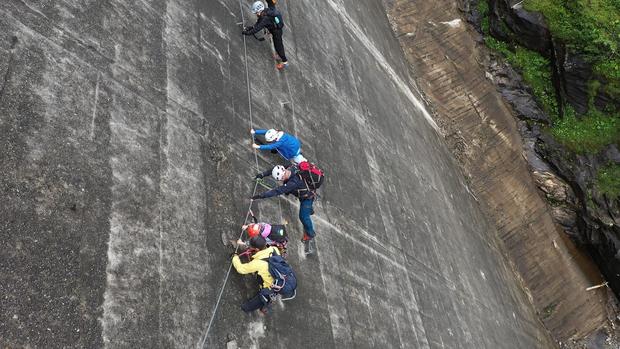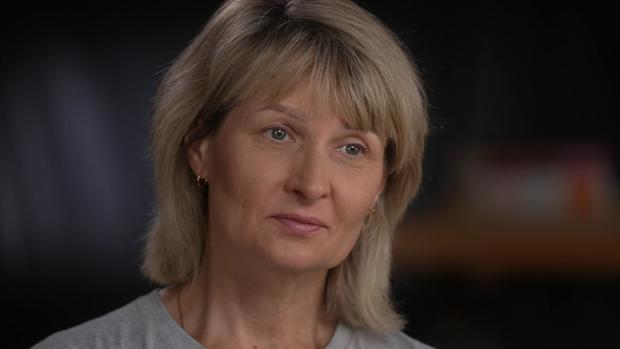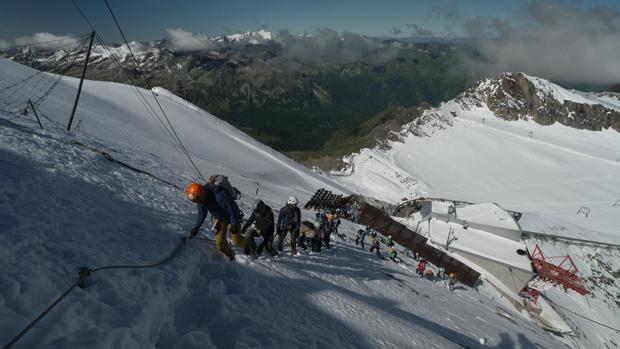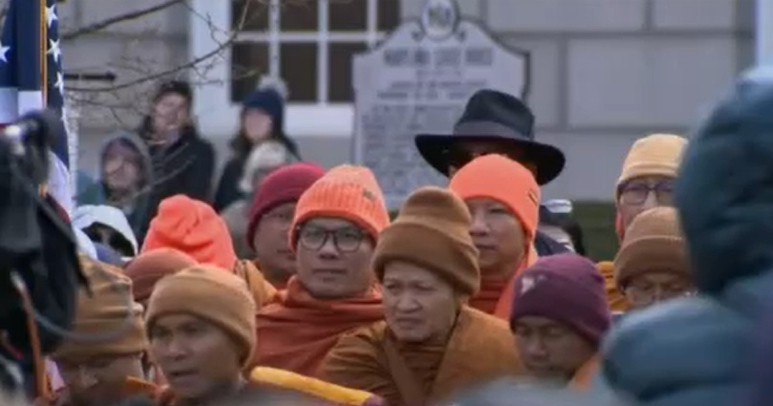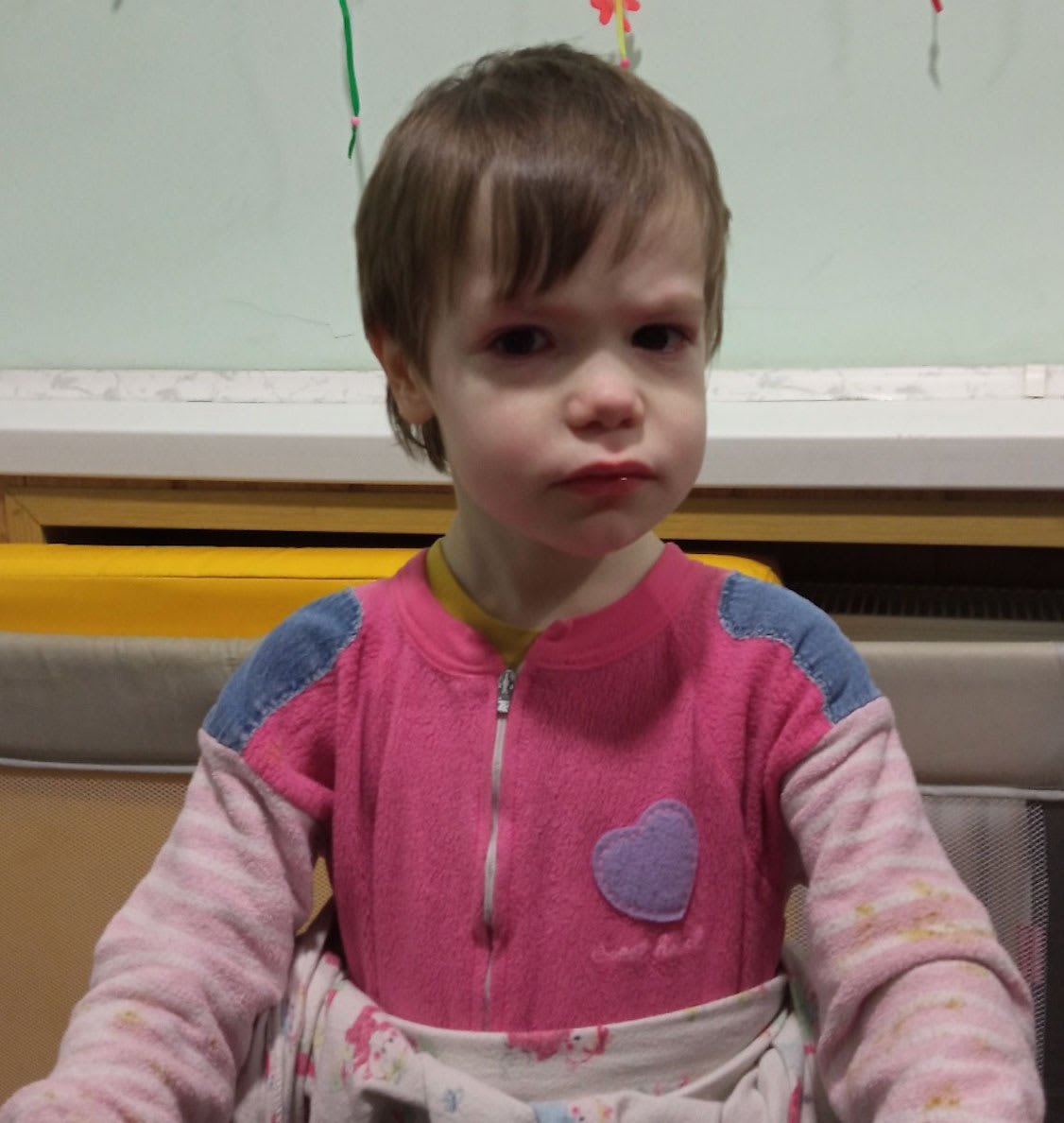Ukrainian widows, children process trauma through mountain climbing in Austrian alps
Ukrainian mom Natalia Zaremba traveled 1,300 miles to a climbing camp in the Austrian alps in the hopes of finding the strength to raise her boys alone.
She was in a group of 13 widows and 20 children from Mykolaiv, a city that had been bombed by Russians for 260 days. The bereaved families went to the Mountain Seed Foundation camp hoping that learning to climb would help them rise above their pain, build resilience and overcome trauma.
Zaremba conquered her fear and, at the end of the climb up Mooserboden Dam, she was walking on air.
"It was something incredible. As soon as I stepped on the ground, the children ran to me, hugged me," she said in Ukrainian. "There were no flowers there, so my older son gave me a branch from a bush."
The climb to recovery
After Russian President Vladimir Putin launched his invasion of Ukraine, American Marine Nathan Schmidt offered Ukrainians what seemed like an impossible hope: that in only six days in the Austrian alps, he could teach grieving families to rise.
Climbing was Schmidt's path to recovery after three combat tours in Iraq. Ukrainian widows, heartbroken over the deaths of their husbands, were skeptical about the benefits of climbing.
Zaremba's husband was a navy pilot shot down in May of 2022, months after the unprovoked invasion of his home country. Time stopped for Zaremba and for her two young boys.
"I think they still don't believe what happened," Zaremba said. "Just like me, they're still waiting for daddy to come home from work."
Illia, 8, and Andrii, 5, imagined mastering the air like their dad. Zaremba focused on finding strength.
"I want to find the strength to not let my husband down, and to give our children a good future," she said in Ukrainian.
First steps toward the summit
The first steps to the summit began with training for the kids, who ranged in ages from 5 to 17. Their moms went to daily group therapy sessions. The challenges got more difficult for the moms and their children each day of the camp.
Guides taught the Ukrainian children to trust and overcome their fears as they rappelled. As the children learned the ropes, the moms seemed to be near the end of theirs.
Amit Oren, an assistant professor in the department of psychiatry at the Yale School of Medicine, led group therapy sessions. She focused on the widows' strengths.
"All I do is take a flashlight, illuminate inside them, and let them see and remember who they are," Oren said.
Schmidt taught the Ukrainian campers about the significance of the rope in mountaineering. The rope teaches responsibility, Schmidt said. He explained that on the rope, you're responsible for the people with you.
"The rope signifies community, it signifies team. You're never alone on the rope," Schmidt said. "It also signifies courage. Because when you're on the rope, that means you're climbing a mountain."
Struggles on the way to the top
The first big challenge is at the Mooserboden Dam, in the Hohe Tauern National Park. The widows and their children used a zipline to fly to the dam's concrete face. Once there, they clipped their harnesses to a steel cable.
Footholds were set across the concrete, which spans about two-and-half football fields. The children and moms climbed across the dam and up its 32 stories.
"We put them on this dam because we want them to confront discomfort," Schmidt said. "We want them to confront their fears."
Svitlana Melnyichuk remained doubtful through much of her time at the camp. She was not expecting a breakthrough. Her husband, Yuriy, was a building inspector who volunteered the day after Putin invaded. His death enraged Melnyichuk.
"I became very distant and angry, and I kept all the sorrow inside," she said. "I didn't share it."
Inspirational stories got through to some of the grieving widows, but they fell short for Melnyichuk.
"Life is a book that you read your whole life. When my husband died, I stopped turning the pages in the book." she said in Ukrainian.
But starting a new chapter is exactly what Oren, the clinical psychologist, had in mind. Oren took the widows to a castle. She described the tough, impenetrable walls to the widows. Oren pointed toward a wall covered in windows.
"I said, 'Unless you open that window, you can't peer out and see the beauty around you. You're trapped.' And ultimately what happened is several of the women stood there on the grass and opened up to each other," Oren said.
Melnyichuk was one of the women who opened up that day.
Reaching the peak
The next day, after the group session, Melnyichuk had been thinking. She went to Oren and told her the conversation had been painful, that her anger was choking her and that she'd decided to let it go.
"She has a long way to go," Oren said. "But she's understood that it's a choice, at least."
Many of the mothers come into the camp unsure about their future, Schmidt said. He compared it to the unknown in climbing, to the moment when the next foothold is unclear.
"You don't know if you're gonna be able to stay in that position or fall," Schmidt said. "This program is meant to show them the footholds and the handholds to fill the cracks that they have, too."
At the end of the camp, one climb remained to reach the peak. It was a steep and icy 570 feet to complete the camp's ultimate test, the peak of Mt. Kitzsteinhorn. As they climbed, Schmidt encouraged the Ukrainians to face their fears.
"My hope for them is that they can remember the achievement that they've had and I also hope they remember the stillness and the peace of these mountains," he said. "You can't hear the sounds of war here. You just close your eyes, and you feel like you could fly."
Schmidt sees a difference in the Ukrainian climbers when they reach the top.
"It's hard to even comprehend. And we know that will be a strong point for them when they go back to Ukraine," Schmidt said. "They will know that they've conquered this wall, and they will, they've conquered their own fears."
Even Melnyichuk took flight, rising to the summit.
"I was screaming, to be honest, I was simply screaming," she said in Ukrainian. "Having breathed in full lungs of air, I was screaming with my head up toward, I don't know, God, nature, I don't know. I was just getting rid of all the negativity."

